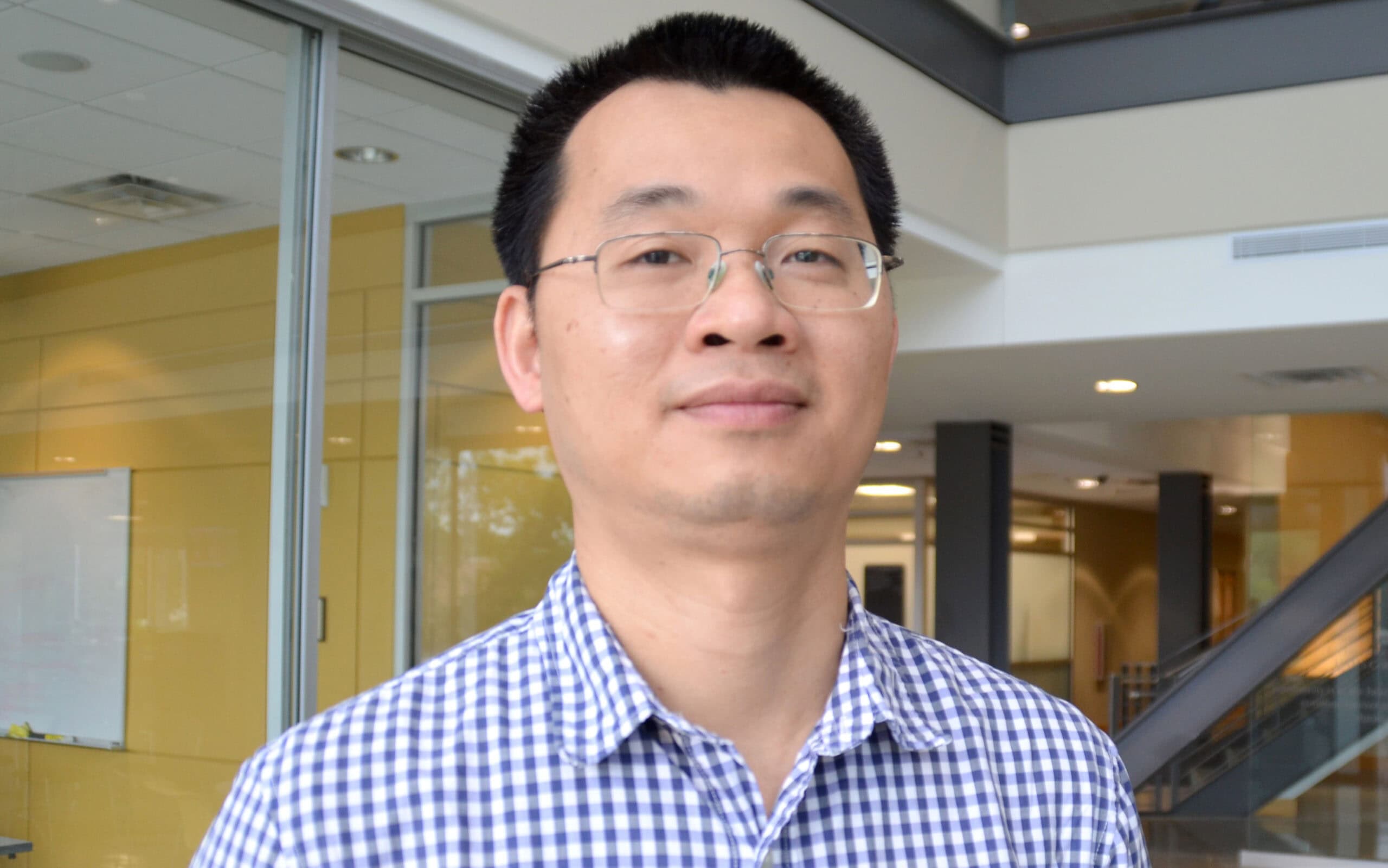UAMS College of Public Health Researcher Awarded $3.6 Million to Study Antibiotic Resistance
| A University of Arkansas for Medical Sciences (UAMS) research team is examining the critical knowledge gap in cefiderocol resistance.
En Huang, Ph.D., associate professor in the UAMS Fay W. Boozman College of Public Health Department of Environmental Health Sciences is leading an interdisciplinary research team that will conduct the project, “Mechanisms of Cefiderocol Nonsusceptibility and Resistance Evolution in Carbapenem Resistant Pathogens.”
The research involves a collaborative effort with microbiologists Sun Hee Moon, Ph.D., and Lu Huang, Ph.D., bioinformatician Se-Ran Jun, Ph.D., along with clinicians Mitchell Jenkins, M.D., and Ryan Dare, M.D.
Cefiderocol is an antibiotic designed to treat complicated urinary tract infections, hospital-acquired bacterial pneumonia and ventilator-associated bacterial pneumonia as well as other infections caused by multidrug-resistant Gram-negative bacteria. It is administered intravenously.
The National Institute of Allergy and Infectious Diseases (NIAID)/National Institute of Health (NIH) is funding the research for $3.6 million. The study launched in September and continues until August 2029.
“The goal of this study is to understand if some bacteria are already resistant to cefiderocol, even if they haven’t been treated with it before. We’ll also look at how bacteria develop resistance after being exposed to the antibiotic,” Huang said. “We’ll investigate how bacteria become resistant to cefiderocol by studying them in the lab, looking at their DNA, and examining their genetic makeup.
“Without a deeper understanding of how resistance develops, we cannot create effective strategies to combat these resistant bacteria. Resistance to the antibiotic limits doctors’ options to effectively treat the various infections.”
The Centers for Disease Control and Prevention (CDC) reports that nearly 3 million antibiotic-resistant infections occur in the United States annually, resulting in more than 35,000 deaths. Huang noted that properly addressing the knowledge gap in antibiotic resistance requires a multifaceted, interdisciplinary approach.
A higher volume of in-depth studies will help researchers and medical professionals fully understand the underlying mechanisms of cefiderocol resistance. Additionally, gaining insights into how resistance develops will also help health care providers make better informed decisions about when to prescribe certain antibiotics.
Huang encouraged practical measures such as people practicing proper hand hygiene and enhancing antibiotic use to significantly reduce the risk of resistance development and transmission.
“Antibiotic resistance is a growing problem and poses a direct threat to public health in Arkansas, making it crucial to understand and address resistance to protect our communities and improve treatment options.”
Huang acknowledged the significant support from UAMS, which enabled him to gather the preliminary data needed to secure the NIH grant. His research was funded by the UAMS VCRI Pioneer Award and the UAMS Center for Microbial Pathogenesis and Host Inflammatory Responses, a center supported by an NIH Centers of Biomedical Research Excellence (COBRE) grant that helps early-career researchers achieve independent funding.
Research reported in this publication was supported by the National Institute of Allergy and Infectious Diseases of the National Institutes of Health under Award Number R01AI175440. The content is solely the responsibility of the authors and does not necessarily represent the official views of the National Institutes of Health.
UAMS is the state’s only health sciences university, with colleges of Medicine, Nursing, Pharmacy, Health Professions and Public Health; a graduate school; a hospital; a main campus in Little Rock; a Northwest Arkansas regional campus in Fayetteville; a statewide network of regional campuses; and eight institutes: the Winthrop P. Rockefeller Cancer Institute, Jackson T. Stephens Spine & Neurosciences Institute, Harvey & Bernice Jones Eye Institute, Psychiatric Research Institute, Donald W. Reynolds Institute on Aging, Translational Research Institute, Institute for Digital Health & Innovation and the Institute for Community Health Innovation. UAMS includes UAMS Health, a statewide health system that encompasses all of UAMS’ clinical enterprise. UAMS is the only adult Level 1 trauma center in the state. UAMS has 3,485 students, 915 medical residents and fellows, and seven dental residents. It is the state’s largest public employer with more than 11,000 employees, including 1,200 physicians who provide care to patients at UAMS, its regional campuses, Arkansas Children’s, the VA Medical Center and Baptist Health. Visit www.uams.edu or uamshealth.com. Find us on Facebook, X (formerly Twitter), YouTube or Instagram.###
